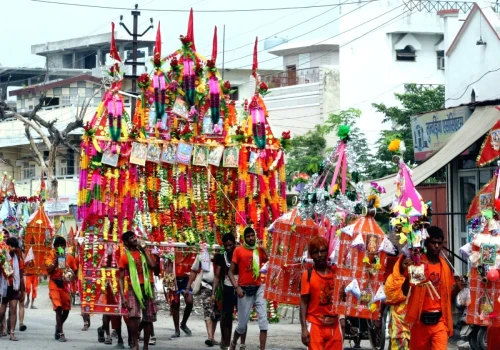_1000_x_700.webp)
One key reason for its holiness is its connection to Lord Shiva. Devotees believe that this month is very dear to Shiva. They fast and pray to him, seeking his blessings. Mondays of Shravan, called "Shravan Somvar," are especially important. People visit Shiva temples, offer milk, and perform special prayers.
Another reason is the presence of many other significant festivals. Raksha Bandhan, a festival celebrating the bond between brothers and sisters, occurs in this month. Nag Panchami, dedicated to snake worship, also takes place. Additionally, Janmashtami, which celebrates the birth of Lord Krishna, is observed during Shravan.
The natural environment also adds to the month’s significance. Shravan marks the arrival of the monsoon season in many parts of India. This rain is seen as a blessing, helping crops grow and bringing relief from the summer heat. The lush greenery and blooming flowers create a beautiful and sacred atmosphere.
Fasting and rituals performed during Shravan are believed to cleanse the soul and bring good health. People avoid eating certain foods and focus on simple, sattvic meals. They also refrain from negative actions and thoughts, aiming for a pure mind and body.
Shravan is the holiest month because of its strong association with Lord Shiva, the presence of important festivals, and the beneficial monsoon rains. Devotees see it as a time for spiritual growth, devotion, and celebration.


